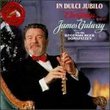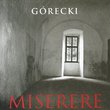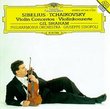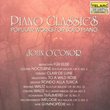| All Artists: George Frideric Handel, Johann Adolf Hasse, Christoph Willibald Gluck, Wolfgang Amadeus Mozart, Roger Norrington, Andreas Scholl, Orchestra of the Age of Enlightenment Title: Andreas Scholl - Heroes / Norrington Members Wishing: 0 Total Copies: 0 Label: Decca Original Release Date: 1/1/1999 Re-Release Date: 5/11/1999 Genre: Classical Style: Opera & Classical Vocal Number of Discs: 1 SwapaCD Credits: 1 UPC: 028946619629 |
Search - George Frideric Handel, Johann Adolf Hasse, Christoph Willibald Gluck :: Andreas Scholl - Heroes / Norrington
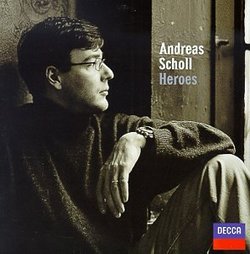 | George Frideric Handel, Johann Adolf Hasse, Christoph Willibald Gluck Andreas Scholl - Heroes / Norrington Genre: Classical
The gods of musical commerce are smiling on hot young countertenor Andreas Scholl: this is his second CD of opera arias to appear in less than a month. The previous disc, a selection of Handel arias on Harmonia Mundi, sho... more » |
Larger Image |
CD DetailsSynopsis
Amazon.com The gods of musical commerce are smiling on hot young countertenor Andreas Scholl: this is his second CD of opera arias to appear in less than a month. The previous disc, a selection of Handel arias on Harmonia Mundi, showcased Scholl's considerable strengths: subtle and sensitive phrasing, deft coloratura, and a pure, rounded tone with little of the disembodied hootiness that used to be accepted from countertenors. His first recital disc for Decca gives us a wider range of music (Hasse, Gluck, and Mozart as well as Handel) and a more complete representation of Scholl's singing--vices as well as virtues. Among the former are his top notes (sometimes squealy or poorly tuned) and a Joan Sutherland-like combination of beautiful sound with indistinct diction and lack of temperament. This is particularly damaging in the laments from Rodelinda and Giulio Cesare, which come across as mere pleasant pastorales; the famous "Che farò?" from Gluck's Orfeo ed Euridice sounds self-satisfied rather than bereft. (To be fair, Roger Norrington's jaunty tempos deserve much of the blame for this.) Scholl also aspirates his coloratura, which will bother some listeners more than others. On the other hand, "Oh, Lord, whose mercies numberless" from Handel's Saul is radiant, and the two arias from early Mozart operas are thrilling. In the end, the disc gives a fair, well-rounded picture of an important young singer. Speaking of pictures, by the way, Decca's photographer deserves plaudits for making this tall, somewhat gawky German with Nana Mouskouri glasses look almost glamorous. --Matthew Westphal Similarly Requested CDs
|
CD ReviewsA Mezzo Converted S. K. Tyler | London | 09/02/2001 (5 out of 5 stars) "As a mezzo who loves singing the Mozart and Gluck trouser repertoire I am naturally suspicious of counter tenors, but after many playings of this wonderful recital of arias, every one of which I covert for myself, I finally admit to loving this wonderful counter tenor in the shape of Andreas Scholl. I discovered this disc after hearing Venga Pur, Minacci e Frema played on Classic FM. Determined to include this aria in a recital as soon as possible I quickly tracked down the recording, as well as a very expensive Barenreiter score of Mitridate - worth every penny! However, many more treats were in store. Every aria on this CD is sung with elegance, refinement, brilliance, and the most staggeringly impressive technique. My only slight reservation is Che Faro - but again, this may well be pure prejudice since I have just sung that wonderful role and consider it my own (and maybe Janet Baker's!). Whatever your position on the counter tenor voice, you must hear this recording, and if you love Mozart, Handel and Gluck, it is required listening." Something new, something old George Peabody | 07/09/1999 (4 out of 5 stars) "This CD confirms my previous feelings towards Andreas Scholl, whilst it reveals something new about him.The confirmation of my previous feelings is centred around Scholl's Handel arias. As was demonstrated in 'Ombra Mai Fu' (Harmonia Mundi), Scholl's voice really is not what is required in Handel opera. Scholl's voice just is too pure and innocent sounding to carry off these passionate and dramatic arias with conviction. What is required here is a voice which is robust, sensuous and earthy. If there is any current countertenor with such, it is David Daniels. 'Con rauco mormorio' and 'Aure, deh, per pietà' are very beautiful sounding, but this is beside the point. Handel concieved these arias for flesh and blood heroes, not angels. In 'Vivi Tiranno!' Scholl does demonstrate that he has some of the necessary fire and bravado, but when he does ornamentate the da capo, it it too little too late. The worse aria, is "Where'er you Walk' (Semele). This was orginally written for tenor, but was transposed up in this recording. It just lacks passion, becoming nothing more than a vapid yet pleasant little ditty. What is particularly annoying about Scholl's singing, is the fact that when he hits the top notes, he has a piping falsetto sound. This often sounds absurd, particularly in the faster arias.That said, the two arias from Saul are very well done. 'O Lord Whose Mercies' is heart rending and intense. This demonstrates once again that Scholl's strengths lie with the contemplative, rather than dramatic. It is not surprising that 'David' was written for a countertenor, rather than a castrato. But, the revelation is the arias by Hasse, Gluck and Mozart. Here, I feel, Scholl is in his element. The clean-limbed simplicity of the music seems to suit his voice. The Hasse 'Palido il sole' is fantastic in its portrayal of fear and doom: this aria is for me the highlight. The Mozart pieces are done just as well too, especially 'Venga Pur' in which Scholl characterises the aria with brilliance. The Gluck is very fine as well." What would this world be without countertenors? patricia_leung | Toronto, Canada | 12/10/2002 (4 out of 5 stars) "I met my first countertenor a few years ago and I had the priviledge of singing beside him in our choir. The incredible purity of the countertenor voice is something that I, as a Baroque music lover, can only dream of achieving. I think that Andreas Scholl is one of the most incredible countertenors today. The purity of his sound and the passion of his performances speaks to me in ways that only music can. I own several of his albums, and this is my favorite. Nothing is quite incredible as in 'Pallido Il Sole' when he dips into his natural baritone register for a few notes and comes back up again. There is something mystical and beautiful about male altos and we, as the female counterparts, should try to emulate."
|

 Track Listings (14) - Disc #1
Track Listings (14) - Disc #1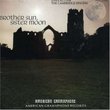

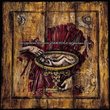


![Across The Universe [Deluxe Edition]](https://nationalbookswap.com/cd//m/51/1251/1241251.jpg)
